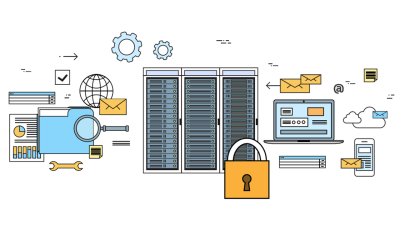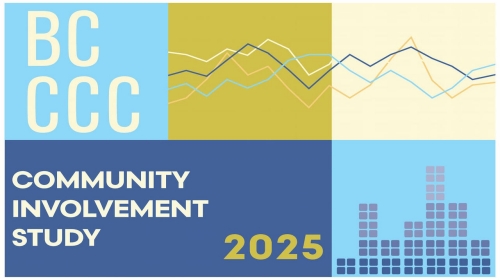WEBINAR: This webinar explores how to measure and communicate your organization's social impact with proven frameworks and strategies that matter to stakeholders.
Big data, big opportunities, big risks

As personal information becomes an increasingly precious commodity in our interconnected world, data security is ever more material to all business operations. Gathering data—from customers, employees, and other key stakeholders—gives companies competitive advantage with the information necessary to anticipate, differentiate, and innovate. However, as recent data breaches have demonstrated, providing inadequate protections of this data can present significant risk.
Global trends indicate that risk will grow. According to a 2019 study[1]a data breach will cost a company $3.92M on average globally ($8.19M in the United States) and a company can experience negative effects for years in the form of lost business and the increased likelihood of additional breaches.[2] Data breaches are also on the rise in number and frequency. The study also reports that the odds of a experiencing a data breach have steadily increased over the last six years to nearly 30 percent, and a Pew study finds that a majority of Americans (64 percent) have had their personal data compromised through a breach.[3]
It follows that government involvement and regulation of data protection will tighten. Companies with operations in Brazil, United Kingdom, Australia, the United States (California), and many other regions now must comply with new laws intended to clamp down on fraud and other consequences of compromised data. In Europe, the EU has passed sweeping changes to data protection via its GDPR regulation, which tightened rules for data disclosure and consumer consent under risk of hefty fines for noncompliance.
As the risk of costly breaches and regulation grows, top leaders believe that corporate citizenship professionals have a role to play in data protection and security. In the most recent State of Corporate Citizenship survey, a majority of executives report that consumer data protection and privacy is an aspect of corporate citizenship that contributes to business success via enhanced reputation, improved risk management, and other dimensions. (Watch for our updated findings for the State of Corporate Citizenship, to be released in early 2020.) There are many opportunities to demonstrate positive corporate citizenship by directly addressing data protection with proactive policies and training.
Companies may also benefit in indirect ways from corporate citizenship commitments related to data protection efforts. For example, recent research suggests strong corporate citizenship may improve intellectual property and data protection, in that it decreases a former employee’s likelihood of using sensitive data to benefit a new employer.[4]
How can corporate citizenship professionals best position their firms for responsible data practices? With positive corporate citizenship behaviors in data protection and beyond, companies can do a great deal to allay consumer fear and regain trust. The possibilities offered by data extend beyond mitigating the risk and consequences of a breach. For example, innovative companies are stepping beyond protection and privacy and working with nonprofit partners to conduct “data philanthropy”—or private sector data sharing—to create an even more advanced picture of an environmental, social, and governance (ESG) issue’s impacts, needs, and behaviors.
With data philanthropy, companies can give back to in a way that reflects their unique core competencies while preserving or expanding value for shareholders. Companies such as Deloitte, Nielsen,and Teradata have donated privately held commercial data to nonprofit and governmental organizations specializing in disaster relief, economic equality, disease tracking, and more. Such donations give nonprofit partners access to the right data—and the analytic capability to make the most of it. Big Data holds the promise of insights that can inform more effective solutions (and measures of progress) to some of our most intractable ESG problems around the globe.
Whether they are gathering data on their customers’ purchasing habits or planning flight patterns, companies are collecting more detailed information than ever. Big data comes with the big responsibility to protect it. Corporate citizenship professionals have a vital role to play.
[1]Ponemon Institute. (2019). 2019 Cost of a Data Breach Report. Retrieved from https://www.ibm.com/security/data-breach.
[2]IBID
[3]Smith, A. (2017). Americans and Cybersecurity. Pew Research Center. Retrieved from https://www.pewinternet.org/2017/01/26/americans-and-cybersecurity/
[4]Flammer, C. and Kacperczyk, A. (2019). Corporate Social Responsibility as a Defense against Knowledge Spillovers: Evidence from the Inevitable Disclosure Doctrine. Strategic Management Journal
Related Content
RESEARCH BRIEF - Researchers investigated how ESG activities help or hurt financial performance, using nine years of data from over 1,200 global companies.
RESEARCH BRIEF - Researchers analyzed 4 US energy exchange-traded funds (ETFs) over 15 years, including 2 dirty energy funds tracking fossil fuel companies and 2 clean energy funds tracking renewable energy companies.
RESEARCH BRIEF - Researchers conducted a survey, which measured perceptions of CSR and ethical leadership within the manufacturing and service industries.
WEBINAR: This webinar explores how corporate giving will be reshaped by the One Big Beautiful Bill. Hear directly from corporate citizenship leaders as they share innovative, real-world strategies that deliver impact for communities and results for business.
This study explores shifting trends in employee volunteering, corporate giving, and other means of corporate community involvement.
This guidebook offers insights on placing employees in nonprofit board service roles.
This study explores shifting trends in employee volunteering, corporate giving, and other means of corporate community involvement.








